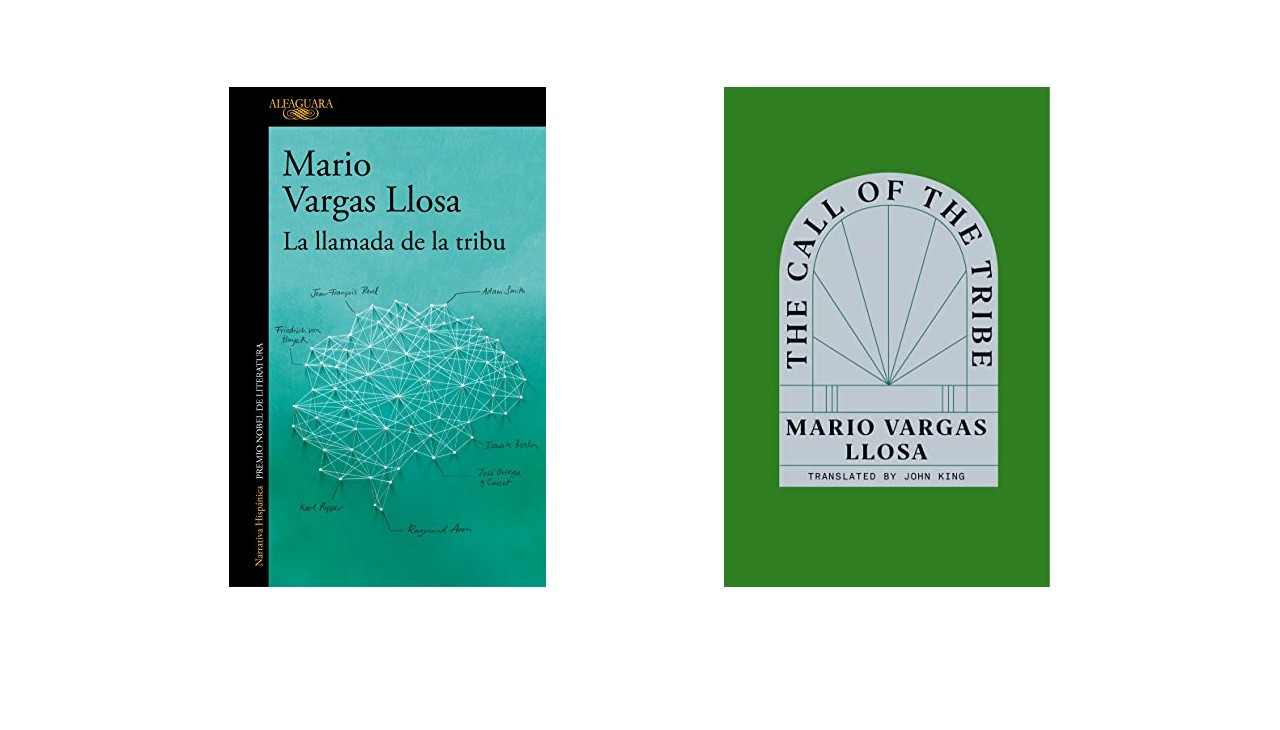
How Mario Vargas Llosa became a liberal
In 'The Call of the Tribe,' the Nobel-winning Peruvian author analyzes the texts that have shaped his way of thinking and seeing the world since he left Peru.
In 2018, Peruvian writer and Nobel laureate Mario Vargas Llosa published a book with a very specific objective — to review the readings that shaped his way of thinking and seeing the world over the last 50 years.
Five years after its original publication in Spanish, the book — a cartography of the liberal thinkers who helped him develop a new body of ideas after the great ideological trauma caused by his disenchantment with the Cuban Revolution and also his distancing with the ideas of Jean-Paul Sartre — is now on sale in English for the U.S. market under the title The Call of the Tribe.
From Adam Smith to José Ortega y Gasset, Friedrich Hayek, Karl Popper, Raymond Aron, Isaiah Berlin or Jean-François Revel, Vargas Llosa reviews the authors who were of enormous help to him during those years of dismay, showing him another tradition of thought that put the individual over the tribe, the nation, the class or the party, and that defended freedom of expression as a fundamental value for the exercise of democracy.
RELATED CONTENT
The authors chosen by Vargas Llosa "are not a bad selection if the final objective is, which it is, to endorse the cause of liberalism embraced after the disappointment of youthful Marxism," reads a review published in the magazine Qué Leer.
In the book, the Peruvian author acknowledges that a key factor in his embrace of liberalism were the years he spent in the United Kingdom at the end of the 60s, then under the government of Margaret Thatcher, of whom he declares himself an admirer.

Winner of the Nobel Prize for Literature in 2010, Vargas Llosa is one of the most respected figures of contemporary Hispanic literature. Born into a middle-class Peruvian family, he grew up between Arequipa and Bolivia, where his mother's family moved to run a cotton company.
At the age of 14, his father sent him to a military boarding school in Lima, where he endured strict military discipline. In one of his first known books, The City and the Dogs, Vargas Llosa portrays the vivid experience, the discipline to which he was subjected at the military school. He later combined his university studies with his work as a journalist, and sympathized with leftist movements such as the Cuban Revolution. After winning a scholarship to study in Madrid, his life was spent between Spain, the United Kingdom and France. It is in Europe where he has written almost all his best known novels, like The War at the End of the World and The Feast of the Goat... most now translated into English.
He has won the most important literary awards, from the Nobel Prize to the Cervantes Prize, the Prince of Asturias, the PEN/Nabokov and the Grinzane Cavour. On Thursday, Feb. 9, he will add a new merit: he will become the first author without an original work in French to enter the Académie Française, the prestigious institution founded in 1634 by Cardinal Richelieu.











LEAVE A COMMENT:
Join the discussion! Leave a comment.